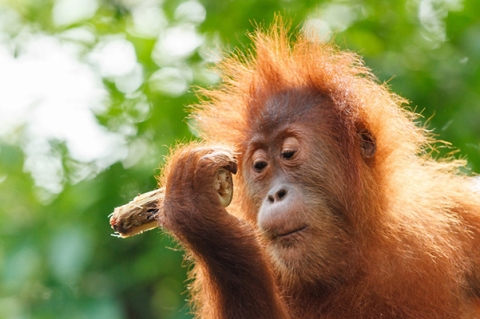Our Psychology, Psychiatry and Neuroscience submission to REF 2021 comprised 47 staff, more than double the number of staff we submitted in REF 2014, matched by the doubling and diversification of our research funding. This expansion supported our established international research strengths in forensic, comparative, evolutionary, developmental and ecological psychology, and allowed us to build critical mass in the areas of health and wellbeing.
We successfully broadened our postgraduate provision, increasing completions by 292% and developing a new multi-institution ESRC-funded Doctoral Training Programme. Our support mechanisms for postgraduates were sector leading, with top quartile scores, an overall satisfaction rate of 97% and progression rates well above average.
Results in REF 2021
- 70% of our overall research quality was rated as world-leading or internationally excellent in terms of originality, significance and rigour.
- 100% of our impact case studies were rated as outstanding or very considerable in terms of their reach and significance.
- 62.5% of our research environment was rated as conducive to producing research of internationally excellent quality and enabling very considerable impact, in terms of its vitality and sustainability.
Research areas
Our research is enabled through four research groups:
The International Centre for Research in Forensic Psychology has an established global reputation for conducting a broad range of criminological and forensic psychological research in areas including detecting deception, offender interventions, memory and decision-making in a forensic context.
The Centre for Comparative and Evolutionary Psychology consists of a multidisciplinary team of psychologists (developmental, cognitive, social and biological) and behavioural biologists who study the evolutionary origins of mind and behaviour in humans and other species.
The Centre for Interaction, Development and Diversity has at its core a commitment to studying psychological phenomena in relation to the contexts and situations in which they emerge using a diverse range of methods and study populations.
The Quality of Life, Health and Wellbeing Group aims to understand psychological and behavioural processes involved in health and wellbeing to produce practical solutions such as lifestyle changes and improvement in quality of life.
Impact case studies
We submitted four impact case studies that demonstrate that our research delivers clear societal benefits aligned to national and international priorities:

Cognitive Credibility Assessment (CCA): Changing interrogation and training policy and practice to enhance lie detection in security, military and forensic settings
With over 18,000 officers trained in its use, the Cognitive Credibility Assessment has transformed military and intelligence interrogation policy and practice across security and counter-terrorism agencies in the UK, US (FBI) and Singapore (Ministry for Home Affairs), increasing lie detection rates to 90% in field trials, compared to traditional techniques.

The ACRE profiling assessment tools: Enhancing employers’ ability to provide person-centred support for autistic people
We have developed research-based employment Profiling Assessment (PA©) tools that generate individually-tailored recommendations for adjustments employers need to make for their autistic employees. These tools have been adopted by UK Job Centres and autism professionals across Spain and have been linked to increased employment rates, cost-effectiveness, and reduced requirements for on-the-job support.

The discovery and protection of a new orangutan species, the Tapanuli orangutan, and sustaining and protecting existing orangutan species
Our researchers have contributed to the first discovery of a new living ape species in nearly a century: the Tapanuli orangutan. We have developed a new transitional release programme for rehabilitant orangutans which considers individual orangutan skill development, increases successful re-introductions and is contributing to species survival.

Self-administered investigative techniques: Changing policy and practice for securing evidence and gathering intelligence
The Self-Administered Interview and Timeline Techniques are innovative investigative tools to elicit comprehensive memory accounts from witnesses, victims, and informants in time-, resource- and security-critical contexts. Recommended as best practice in the UK, Norway, Sweden and the Netherlands, they have been incorporated into the training curriculum for organisations including the Ministry of Defence (UK) and the CIA and FBI (US).
Collaborations and partnerships
Our academic collaborators include:
- CREST with the Universities of Lancaster, Bath, UCL, Central Lancashire, Stirling (investigative interviewing)
- FACEDIFF with the Nottingham Trent University, University of Liverpool and the MRC Centre for Macaques (facial expressivity)
- University of Southampton and University of Cardiff (care homes for older adults)
- EU funded research network across five countries (intersubjectivity)
Our non-academic collaborators include:
- FBI, CIA, NCA, UK police agencies
- UK Government: Ministry of Defence, Department of Health
- Office for Students, Education Endowment Foundation
- Alzheimer’s Society, Age UK
- Chimfunshi Wildlife Orphanage, Macaca Nigra project, The Donkey Sanctuary
